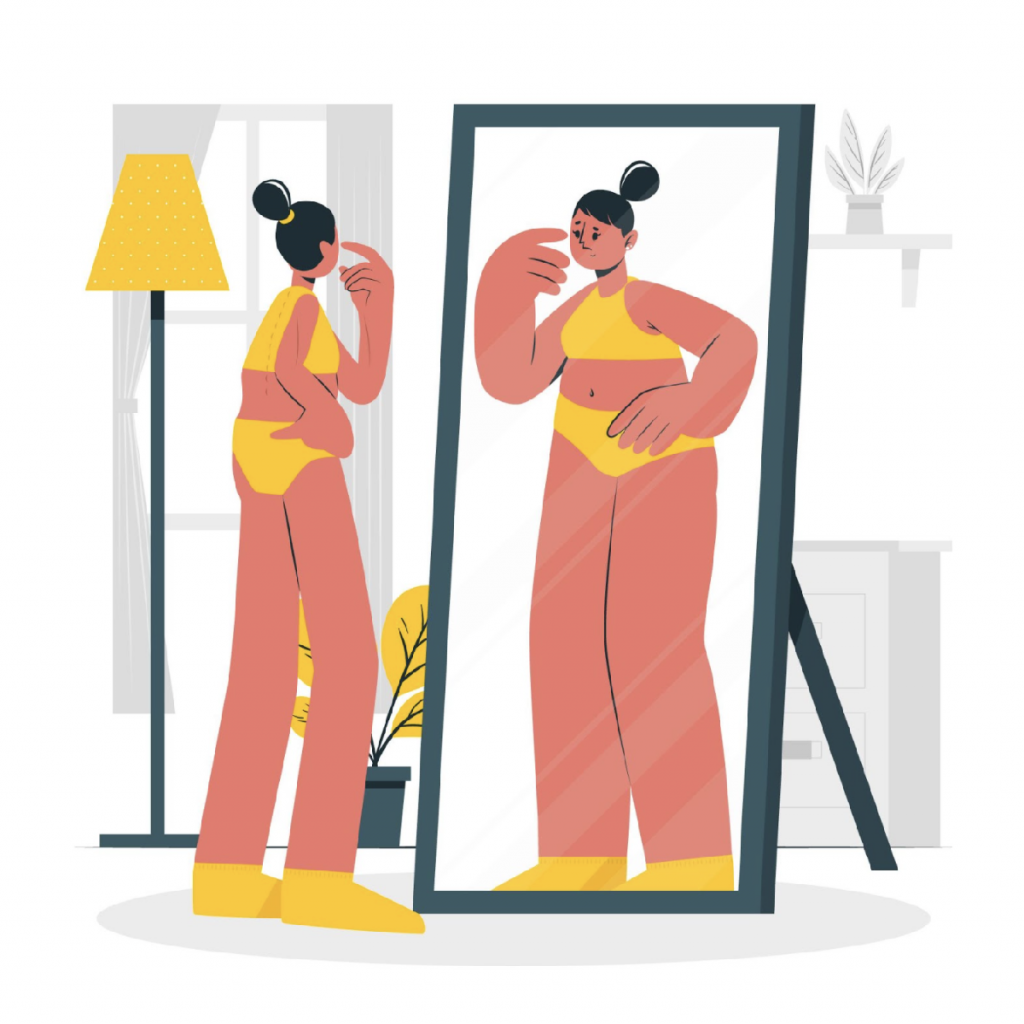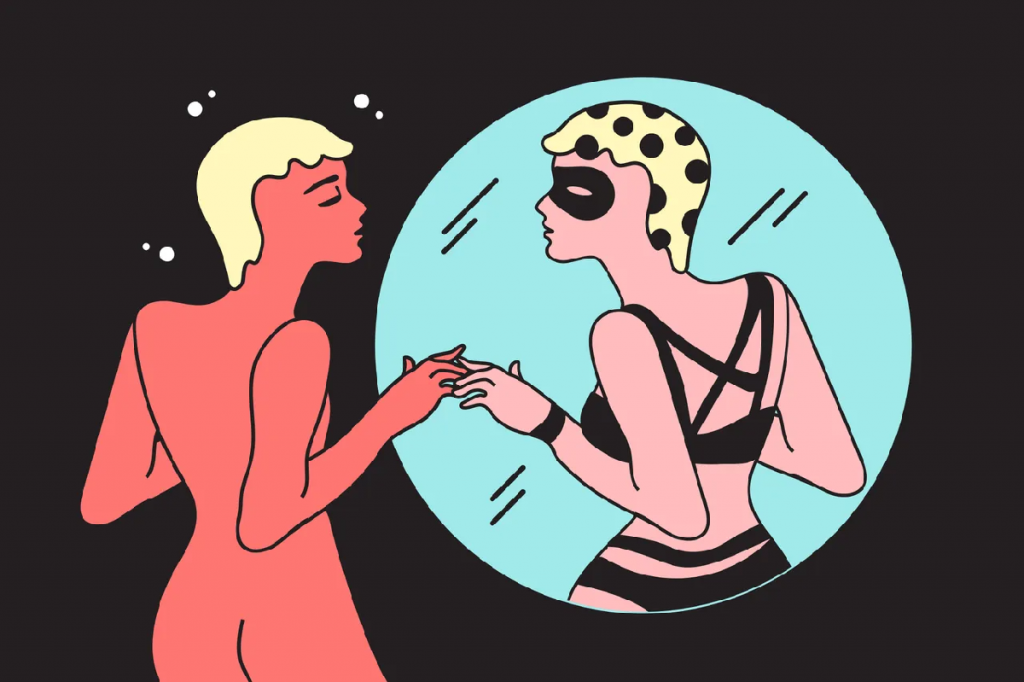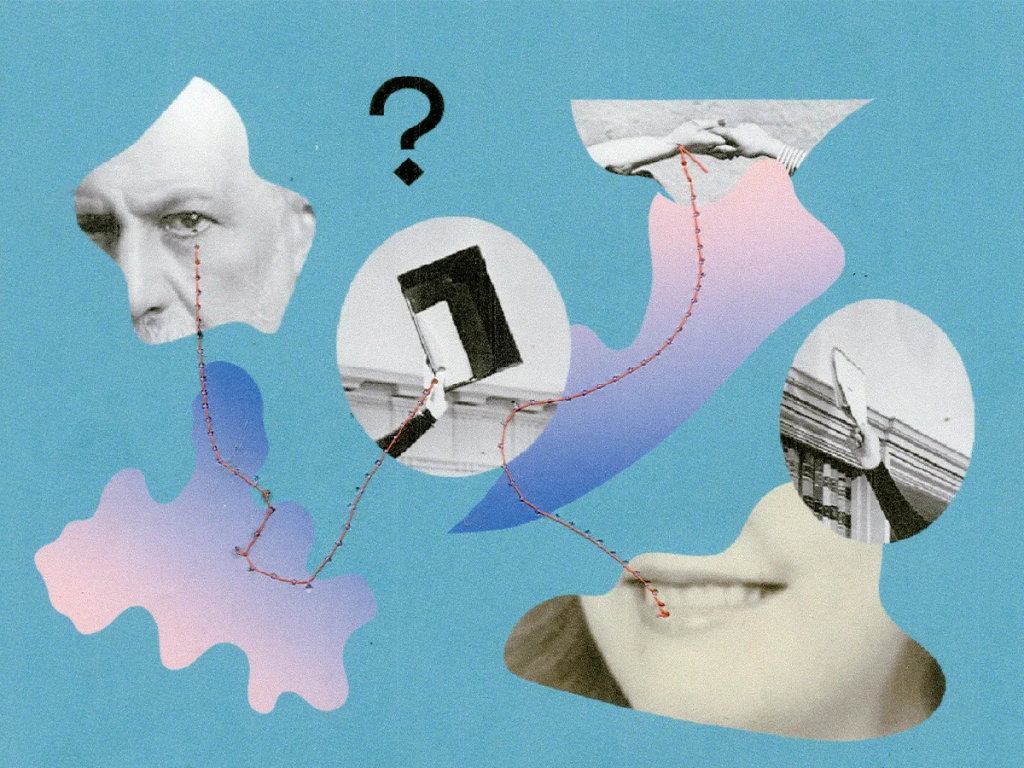Can Body Dysmorphia Affect your Sex Life?
Living in a time that is warped with selfies and social media posts can be scary. It can be even scarier for the ones having a particularly hard time accepting the way they look. Body Dysmorphia is a body image-related disorder and often has multiple implications in one’s personal, romantic, sexual and/or professional life. While reports suggest that almost the same number of men and women have body dysmorphia, men are more prone to having muscle dysmorphia or genitalia related anxiety. Men also often have a tough time opening up about their feelings and struggles making the process of recovery even more difficult.
In this article, we will try to understand what is body dysmorphia and how it can impact one’s sex life.

What is Body Dysmorphia?
Before we answer that question, let us first understand what body dysmorphia can feel like.
Most of us have stood in front of a mirror wishing we could change something about our appearance. Not being able to love how you look is not that uncommon. However, body dysmorphia is more than just a feeling of insecurity about your appearance. While a lot of people (including me) would love to change how certain parts of our body look, people with body dysmorphia will be thinking about it obsessively for hours daily, causing disruptions in their day-to-day lives.
Body Dysmorphic Disorder (BDD) is a body-image disorder that causes people to fixate on the idea that there is some flaw with their physical appearance and leads them to change their behavior based on this perceived imperfection. BDD emerges mostly in childhood and is seen mostly in adolescents and adults. Some of the common parts that people find faults with include (but are not limited to) hair, skin, nose, chest, stomach, or genitalia.
Like most mental health disorders, the causes of BDD are unclear. It could be any combination of biological or environmental factors that cause BDD. According to the Anxiety and Depression of America, these could be a genetic predisposition, neurobiological factors, personality traits, and negative life experiences.
Even if one is unaware, BDD behaviors impact one’s life in various ways. It can negatively impact their work, relationships, recreative activities, and so on. It can also lead to other mental disorders such as social anxiety disorder, depression, or eating disorders.

So, how does BDD affect one’s sex life?
When we talk of attraction, we often place a lot of emphasis on one’s physical appearance. Therefore, BDD can, quite evidently, have a significant impact on one’s sex life.
According to a study on University students, people with BDD are more prone to take part in compulsive and impulsive sex. This behavior was prompted by the need to focus on something other than their feeling of inadequacy. However, in most cases, such behavior only fed into their insecurities. Indulging in sex can also become a way of seeking reassurance and momentary physical affirmation from others. The fact that someone was willing to have sex with them would be the point of reassurance for them.
On the contrary, some people completely stop indulging in any form of physical intimacy in fear of judgment. BDD makes people very self-conscious and they prefer to isolate themselves completely.
While BDD does not exactly affect one’s sex drive, ability to be aroused, or orgasm, it can impact one’s level of sexual satisfaction or overall satisfaction. Since one is constantly thinking (or trying to not think) about their bodies, they often fail to fully enjoy the experience of sex. Some people might get triggered by some part of their body being touched, or their partner’s words while having sex. Even if they do not stop having sex at that moment, they might dissociate and once again, not be able to really enjoy sex. Even if they do manage to move around and maybe even moan, they have mentally checked out from reality.

What can you do, then?
People with BDD often try to change their physical appearance through cosmetic surgery, make up, and so on. However, if you are someone struggling with BDD, these ways might get you more caught up in the whirlpool of fixating over your flaws instead of making you feel better.
One of the most effective ways of dealing with BDD is through psychotherapy. Treatment for body dysmorphia often involves a combination of cognitive behavioral therapy (CBT) and medication. The key is to learn how to challenge your negative thoughts and control your obsessive behavior.
There is a lot of pressure nowadays to love yourself and love your body. However, what they never told us was how difficult it is to actually practice self-love. So remember, on days you do not feel any love for the body you see in the mirror, forgive yourself for not being able to do so. Accepting yourself and making peace with your body is as far as you will get on some days and that is perfectly normal. Someone who has spent years trying to hide and/or fix the perceived flaws in your body might find it difficult to suddenly make peace with the flaws. Remember, the issue is more in your mind than in your body.
If someone you know suffers from BDD, avoid talking too much about physical appearances, especially theirs, in front of them. Even talking about your own flaws or insecurities in an attempt to make them feel better might not be such a good idea. Provide them a safe and judgment-free space to share their feelings. But also encourage them to seek out help from trained professionals.

Conclusion
Nowadays, there is a lot more awareness about body dysmorphia and how it might affect one’s life as more and more people are beginning to talk about it. It still often goes unnoticed especially because people suffering from it, try their best to hide the symptoms. However, if you or someone you love is struggling with BDD, there is hope. Sadly, there is still not much research that has been done on body dysmorphia in the LGBTQIA+ community and how it affects them.
Cover Credits: VICE
Author

